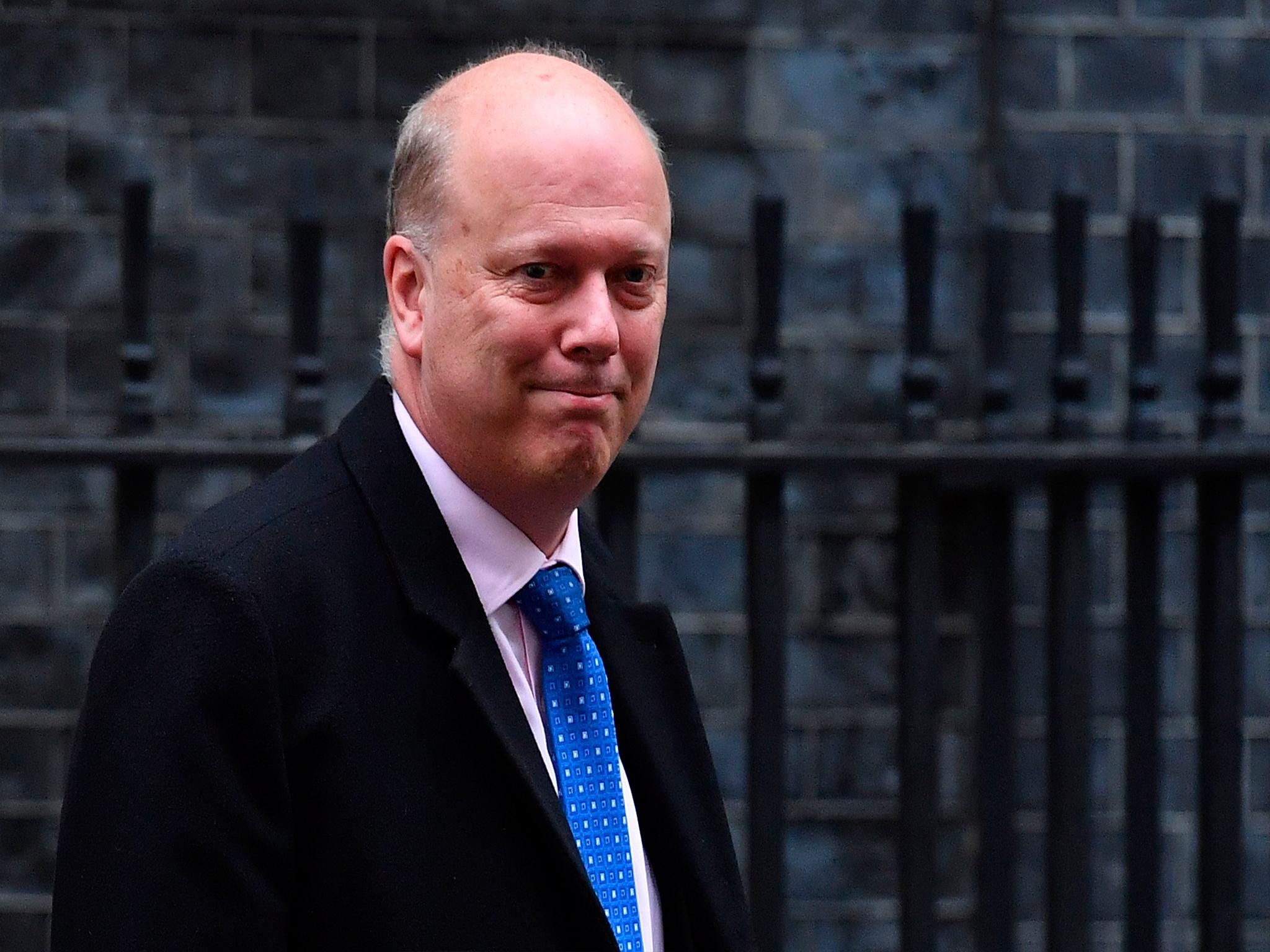'Pay-per-mile' scheme being considered for non-British lorries using UK roads
Transport Secretary Chris Grayling says scheme won't govern car drivers for 'foreseeable future'

Your support helps us to tell the story
From reproductive rights to climate change to Big Tech, The Independent is on the ground when the story is developing. Whether it's investigating the financials of Elon Musk's pro-Trump PAC or producing our latest documentary, 'The A Word', which shines a light on the American women fighting for reproductive rights, we know how important it is to parse out the facts from the messaging.
At such a critical moment in US history, we need reporters on the ground. Your donation allows us to keep sending journalists to speak to both sides of the story.
The Independent is trusted by Americans across the entire political spectrum. And unlike many other quality news outlets, we choose not to lock Americans out of our reporting and analysis with paywalls. We believe quality journalism should be available to everyone, paid for by those who can afford it.
Your support makes all the difference.A “pay-per-mile” system will not be introduced for car drivers in Britain for “the foreseeable future”, the Transport Secretary has said.
But Chris Grayling said he was consulting on plans to introduce such a system for lorries to ensure continental trucking firms, which operate in Britain without filling their vehicles with local fuel, contribute to the cost of using the roads.
A consultation is being carried out to update the HGV road user levy, which was introduced in 2014 to ensure vehicles make a contribution to the wear and tear of the road network.
Mr Grayling dismissed suggestions that car drivers could be charged under a pay-per-mile system.
He told BBC Radio 4’s Today programme: “No that’s not the plan. I know lots of people argue for this and a lot of people think it’s the right thing to do, we are not preparing that as an alternative route to funding our roads or to bringing in tax.”
He added: “In the foreseeable future we have got no intention of doing that.”
Explaining the proposals for lorries, he said: “It’s about creating a level playing field for lorries.
“Our hauliers will complain that a continental truck, it comes in with a tank full of low duty diesel, spends several days working in the country, goes away again, and pays nothing towards the use of the roads.
“What we’re aiming to do now, we already have a system in place that provides some limited contribution, but we’re now consulting the industry and saying if we were to move away from different types of tax on hauliers and move to a pay-per-use basis, so that everybody, British, international, contributes to the roads, do you think that’s a good idea?”
He spoke after the Department for Transport announced proposals that will allow councils to bid for up to £100m of funding for each A-road they want to enhance.
The creation of a major road network (MRN) will see bypasses, road widening and junction improvements on carriageways maintained by local authorities.
Some 5,000 miles of key A-roads will be included in the scheme, which was put to public consultation on Saturday.
The MRN will allow local authorities to take a share of the multibillion-pound national roads fund which is supported by vehicle excise duty.
Motorists drove 324 billion miles on Britain’s roads in 2016, up 2.2 per cent on the previous year.
AA spokesperson Luke Bosdet said many drivers suffer a “daily nightmare” at notorious pinch points so improvements to ease traffic flow are “very welcome”.
Steve Gooding, director of motoring research charity the RAC Foundation, added: “For many businesses an economically important major road is the one that runs right up to the factory gate.
“It will be interesting to see whether the business bodies consider the Government’s plans to go far enough in designating the roads that matter to their members.”
But Bridget Fox, sustainable transport campaigner at the Campaign for Better Transport, described the announcement as “a missed opportunity to fix local transport problems”.
She claimed the Government should take a “fix it first” approach of prioritising road maintenance over bypasses and widening projects, as well as improve public transport, walking and cycling routes.
The consultation runs for 12 weeks and the strategy could be implemented in 2020.
PA
Join our commenting forum
Join thought-provoking conversations, follow other Independent readers and see their replies
Comments